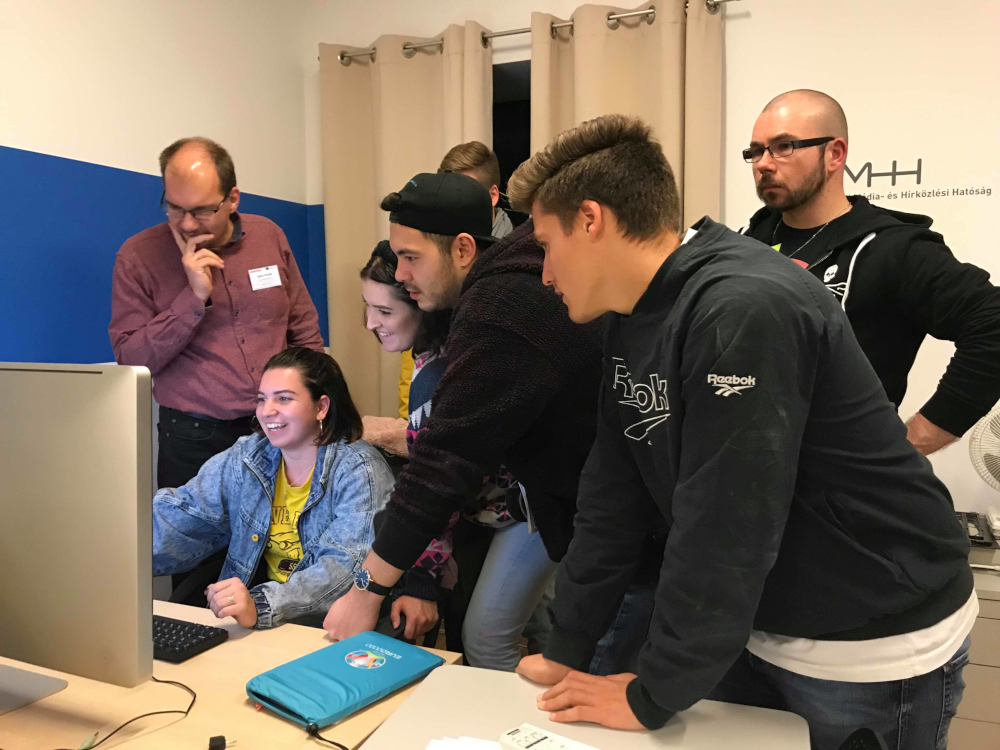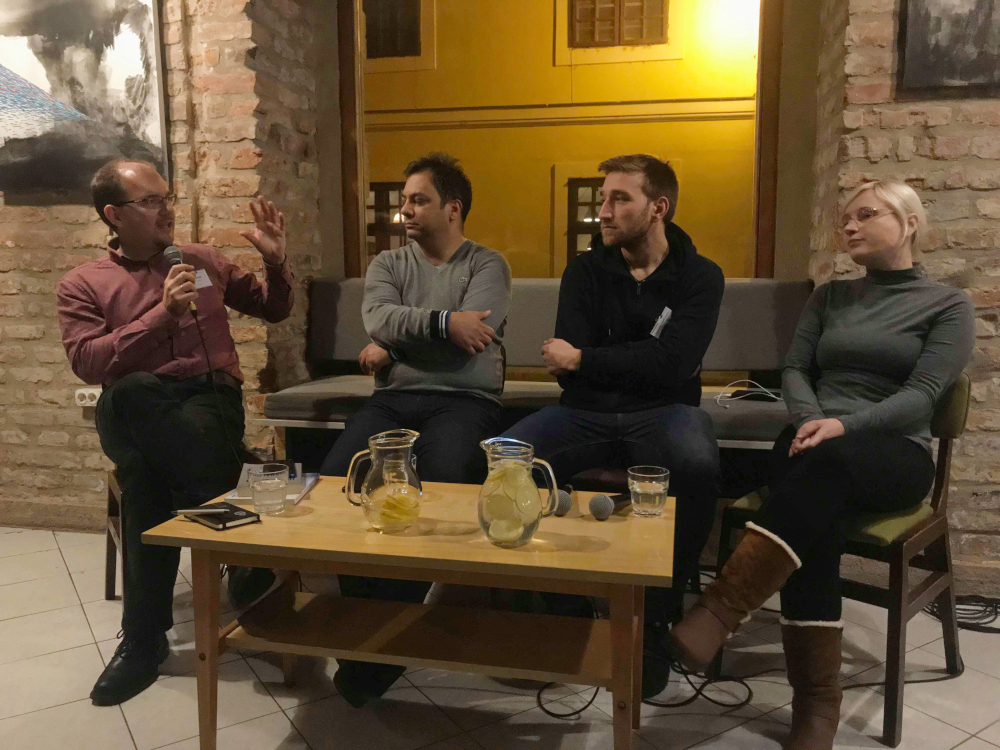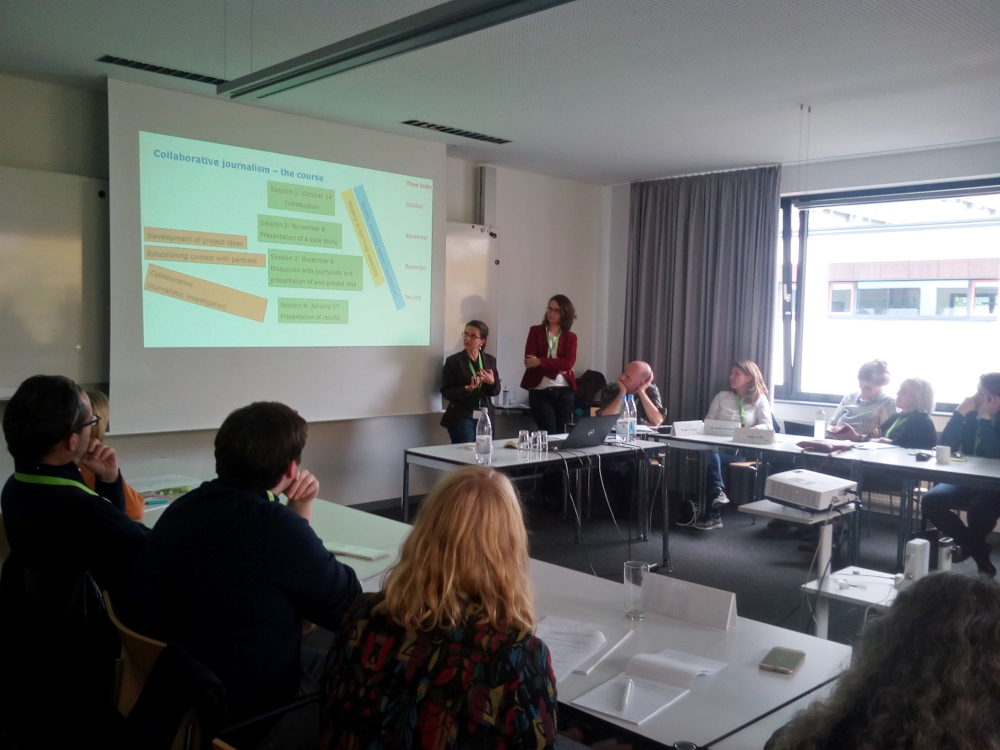
Journalism is a dynamically developing area, both from a higher education and a labour market point of view, which makes transnational cooperation and digitalisation especially important. The project called "Newsreel – New Skills for the Next Generation of Journalists", implemented under the supervision of the University of Pécs, sought answers to the resulting challenges. Approaching the end of the project, we talked to Project Coordinator Gábor Polyák, teacher at the University of Pécs.
The Role and Form of Journalism to be Reconsidered - Presenting the Newsreel project of the University of Pécs
| Project title: NEWSREEL – New skills for the next generation of journalists Term: September 1, 2017 - August 31, 2020 Partners: University of Pécs; University of Bucharest; Erich-Brost Institut für Journalismus in Europa, Dortmund; University Institute of Lisbon Intellectual products: a comparative analysis of the situation of journalism, drafts for the courses, e-learning educational materials, auxiliary materials, online dictionary Website: newsreel.pte.hu |
How did the idea come up to apply specifically under higher education strategic partnerships?
We had a professional and a personal reason. The professional reason was that all around the world, we need to reconsider the role and form of journalism, which raises particularly serious social questions. Journalists must find a way to their audiences in the noise of social media, and retain the credibility with which they have so far contributed to the functioning of democratic societies. Since digital and social media based publicity raises similar questions in every country, and since we can learn a lot from foreign partners about journalism training itself, from a professional point of view, such a partnership appeared absolutely justified. And as for the personal reason, I met our partners at an event, and I knew from the first moment that we would have a common project with all three of them. During the project, this sympathy developed into a friendship, and we are constantly seeking opportunities of working together again.

The project outcomes included a number of electronic courses, too. What is the novelty about these project products?
The significance of e-learning, for example, has been clearly shown by the coronavirus pandemic. We can use our materials at our courses very well, even in this situation. Developing the training material was a prolonged process, with a lot of preparatory work and check points. The final result was four electronic courses, with each covering a particular field of digital journalism. The German partner addressed the field of collaborative, primarily cross-border journalism; the Romanian participants developed a data journalism and data visualisation curriculum; the Portuguese focused on the future business models of journalism, and we addressed such ethical issues as fake news, the transparency of journalism or data leakage. These were new topics at a European level, too, and the materials developed are not only valuable to the partner institutions. Another goal we had set was to develop English language training, thus making preparations for closer cooperation, even in the form of common training.
To what extent do you involve students in the project? Do you receive any feedback from them?
Each partner university has tested the educational materials in a course, and we tried to integrate the feedback we'd received into the final curriculum. The cross-border journalism project was also given an important role: students from each country joined a team and addressed a topic related to environmental protection and climate crisis. The plan was to present the materials completed at the closing conference of the project in Lisbon by the students, but unfortunately, it was temporarily overridden by coronavirus. The articles will be published on the project website, and we believe that the Lisbon workshop will not be cancelled completely, either.

What proved to be the greatest challenge during the implementation? Did any unexpected difficulty arise, either from a professional or a project management point of view?
We are all just learning the process of e-learning development. Of course, the technical development was done by an expert, and we created the professional content, but in the case of e-learning, it has a peculiar logic. The Hungarian team was the link between the foreign partners and the Hungarian developer, which wasn't an easy task, but since everybody was very enthusiastic, we overcame the difficulties without any conflicts. I think we came up with a pretty good solution for management. Each participant is responsible for one particular professional area (collaborative journalism, data journalism, business models, ethical issues), which they control all along, and we also shared the management of each phase. Thus, none of us was overburdened, still, everybody was given a leading role; on the other hand, we didn't have to wait for each other, because everyone was managing their own specialist areas.
How are outcomes integrated into the current training in the institutions involved in the project and those outside the partnership?
As I mentioned, we've already held courses based on the intellectual products developed. In Pécs, we are planning two training courses where we can use all the educational materials. I am confident that in a second strategic partnership project, we will be able to extend the professional areas to an extent that we can build an independent training course or master's course on them. Wherever journalist training is conducted, the topics we addressed are included in the curriculum, so there's a good chance that the courses, or some of them, will be integrated in the curricula of other universities, too. Actually, the first phase of the research was preparing a comparative study on the situation of journalist training, and the freely available study attracted a lot of interest from all around the world.

Is there anything you would plan or do differently today?
We would definitely devote more time and personal meetings to the preparation of e-learning, presenting the opportunities and understanding the concept. If we can continue, we may also invite an expert to the project to facilitate communication between content creators and the IT developer. Today, we are also more familiar with the developer platforms, and we could surely create even more interactive materials. But all in all, it's a project which I would do just the same for a second time.
Approaching the end of the project, the question arises what plans you have for the future; are you planning closer cooperation with other institutions, or even a new project?
We definitely want to make our relations as close as possible. We are working on the next KA2 project, and when that's over, another joint master's course can come. Meanwhile, we visit each other, attending conferences and giving classes, and strengthening our personal relationships.
Utolsó módosítás: 2020.07.27.












